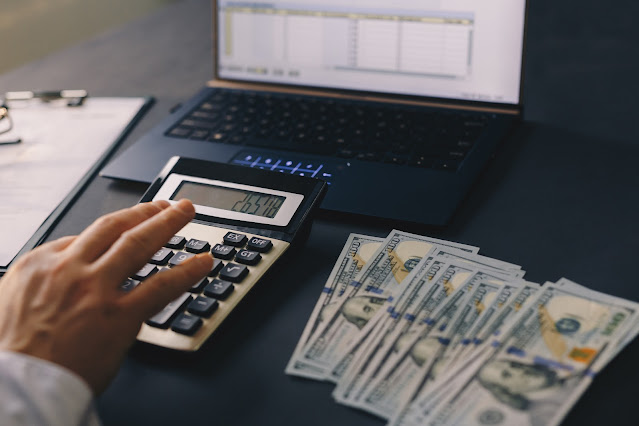 When building your finances, there are many moving parts to consider. One of the first things is that you must understand how the different elements work together to make the most of your money.
When building your finances, there are many moving parts to consider. One of the first things is that you must understand how the different elements work together to make the most of your money.For example, creating a budget, learning how to make your money work for you, and the advantages that professionals can bring can all move you closer to your financial goals.
Below are some ways to understand how finances work and make headway into creating and maintaining healthy finances.
Setting Goals
Before you can get started on any financial plan, it's important to set some goals. What do you want to achieve financially? Are you working toward paying off debt or saving for a big purchase?
Do you have an emergency fund to rely on in the event of a disaster or any retirement planning setup? Knowing what your end goal is will inform all of the steps that come next.
Creating A Budget
Once you've identified your goals, it's time to create a budget to create a roadmap to achieving them. This is where all of the hard work begins—figuring out where your income is coming from, tracking expenses and allocations, and managing debt payments.
You should also use this opportunity to identify areas where you can cut back or save more to put more money toward reaching your goals.
Some methods of creating and sticking to a budget can also include different bank or credit union accounts for different purposes. For example, you may open a savings account specifically to take care of your debts and have a different account for your emergency fund.
Some methods of creating and sticking to a budget can also include different bank or credit union accounts for different purposes. For example, you may open a savings account specifically to take care of your debts and have a different account for your emergency fund.
You may also have accounts in different institutions, such as one in a bank and one in a credit union, for example, Bellco Credit Union, because of your incentives or history with those institutions.
Finding advantages and methods of keeping your money on track for your intended purposes can go a long way toward furthering your goals.
Learning About Investing
If part of your financial plan involves investing (which it should), then now is the time to learn more about investing strategies and products.
There are many resources available online that can help guide you through the process. A good place to start is by researching stocks and bonds, which are two of the most popular types of investments. You can also explore mutual funds and ETFs (exchange-traded funds).
Learning about investing will help ensure that you're making smart decisions with your money that will pay off in the long run.
Finding Professional Help
If all of this sounds overwhelming or intimidating, don't worry—it doesn't have to be! The best way to build a solid financial foundation is by finding professional help from financial advisors or online tools like budgeting apps or investment trackers.
These professionals can provide personalized advice tailored specifically to your circumstances and goals so that you can confidently make informed decisions.
Building a strong financial future takes dedication and commitment, but it's definitely possible! It starts with setting clear goals and creating a realistic budget that works for your lifestyle.
Building a strong financial future takes dedication and commitment, but it's definitely possible! It starts with setting clear goals and creating a realistic budget that works for your lifestyle.
From there, it's important to learn as much as possible about investing strategies so that you're prepared when it comes time to put your money in motion.




